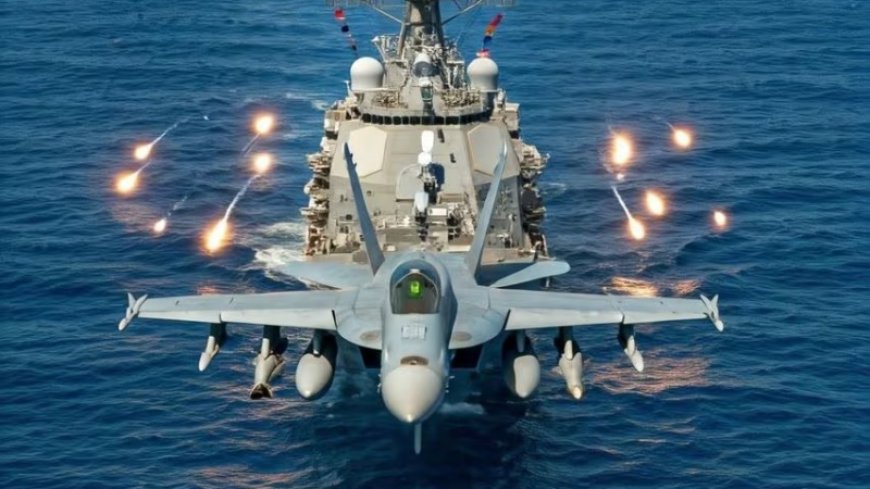A Wake-Up Call for America's Air Superiority: The F-18 Downing in Yemen
The recent downing of a US F-18 fighter jet during a mission over Yemen is not just another military incident; it’s a glaring reflection of America’s vulnerabilities in the face of evolving threats. While US forces, alongside British allies, have long boasted of their unrivaled air superiority, this event suggests that such claims might be overstated, especially when confronted by increasingly sophisticated missile and drone technology.

Another military event aside, the recent downing of a US F-18 fighter jet over Yemen is a stark illustration of America's frailties in the face of changing dangers. This incident shows that the United States and its allies may have exaggerated their air supremacy, particularly in light of the ever-increasing sophistication of missile and drone technology.
The situation escalated as the Yemeni army launched retaliatory missile and drone strikes in response to multiple bombings on the country by fighter jets from the United States Navy and Britain. In the Red Sea, American and ally vessels were the targets of these retaliations. American planes attacked missile stores and command centers in Yemen, according to US Central Command (CENTCOM), in an operation meant to reinforce US military control in the region.
Even though the United States military boasts about its superior technology, CENTCOM's report admitted that a US F-18F Super Hornet was shot down. As the plane attacked Yemen, a missile hit it, injuring one of the pilots. The plane was part of the carrier strike group USS Harry S. Truman. At first, CENTCOM stated that the USS Gettysburg, which was part of the carrier group, had fired upon the plane. However, the veracity of this account diminished rapidly. Yemeni military officials presented an alternative narrative, asserting that the F-18 was shot down as part of a larger missile and drone assault that also compelled the USS Harry S. Truman to withdraw from the area.
This event will have far-reaching consequences. To begin with, it shows how ineffective the United States' air and missile defense systems really are. Amid widespread consternation and doubts regarding the Navy's preparedness to counter such sophisticated threats, reports surfaced that US defenses were overwhelmed by the Yemeni strikes. The experience shows that no system is impenetrable, particularly when confronted with unorthodox and agile threats like the drone and missile technology that Yemen now seems to have in plenty, even though the US military keeps bragging about its cutting-edge technology.
There are larger strategic and political implications to think about in addition to the technical shortcomings. The US, which has always enjoyed a preponderance of military power in the region, might be neglecting the ever-changing capabilities of its regional rivals. The war-torn nation of Yemen is obviously figuring out how to use cheap but effective weapons against a far more formidable enemy. Yemen is rapidly becoming as a much more dangerous adversary than the United States military has acknowledged, thanks to Iranian backing. Iran has long been blamed for providing the Houthi rebels in Yemen with advanced weaponry.
The underlying inconsistencies in Western foreign policy are further demonstrated by this occurrence. In an effort to deter Iranian influence and safeguard vital interests, the United States and its allies have ramped up their military measures in the region, which include bombings and naval blockades. On the other hand, these measures just make the humanitarian situation in Yemen worse, making life even more difficult for the people living there. Although the United States claims stability and security as an excuse for its military presence, the situation is actually much more complicated and harder to defend.
While the loss of a $70 million plane may be a blow to the US economy, it may be seen as a strategic win for Yemen, proving that not even the most sophisticated militaries can resist overwhelming odds. This could be a watershed moment in the war, with Yemeni forces able to challenge US power in ways that were previously unthinkable. Military dominance is not guaranteed, and the West, particularly the United States, must acknowledge this. With regional geopolitical tensions on the rise, it might be time to reevaluate strategy and military capabilities to avoid learning the hard way.













































